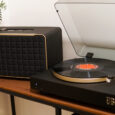Sesame Place has partnered with the International Board of Credentialing and Continuing Education Standards (IBCCES), a global leader in online training and certification programs, to become the first theme park in the world to be designated as a Certified Autism Center (CAC).

The specialized services and features of the theme park for guests with autism and other special needs will be in place when it reopens on April 28. Sesame Place is based on the Sesame Street television program. It is located in Langhorne, Pennsylvania.
Both Sesame Place and Sesame Street have been making efforts to provide a more inclusive and well-rounded entertainment for all types of families and individuals. Around the same time last year (2017), the character of Julia was introduced as Elmo‘s friend who has autism.
READ MORE: Sesame Street Is Introducing A New Character With Autism In April
“Simply by making Julia ‘part of the gang,’ she is already having a big impact, helping to teach children and families all about acceptance. Julia highlights that while the differences between children with autism and their peers may seem significant, all children have something far more important: unique qualities and talents that make the world a more interesting place!” Sesame Street cited in its website.

As an autism-certified center, the staff of Sesame Place undergoes specialized training to ensure they have the requisite knowledge, skills, temperament, and expertise to cater to all children, including those with special needs. The training focuses on sensory awareness, motor skills, autism overview, program development, social skills, communication, environment, and emotional awareness.
The park follows the IBCCES Sensory Guide, which provides insight on how a child with sensory processing issues may be affected by each sense for rides and attractions at Sesame Place. It also has a Ride Accessibility Program, which matches the individual abilities of its guests to the requirements of each ride and by evaluating the physical and mental attributes required to safely ride each ride.
Guests in need of some quiet time and relief from sensory stimulation can also use Sesame Place’s quiet rooms and so-called low sensory areas. There are also special options in dining such as quieter and more accessible areas. Even limited interactions with Sesame characters during performances can be arranged.
Let us hope that more autism-certified centers will open up in other countries, including the Philippines! Which other theme parks do you think should follow Sesame Place’s lead?




